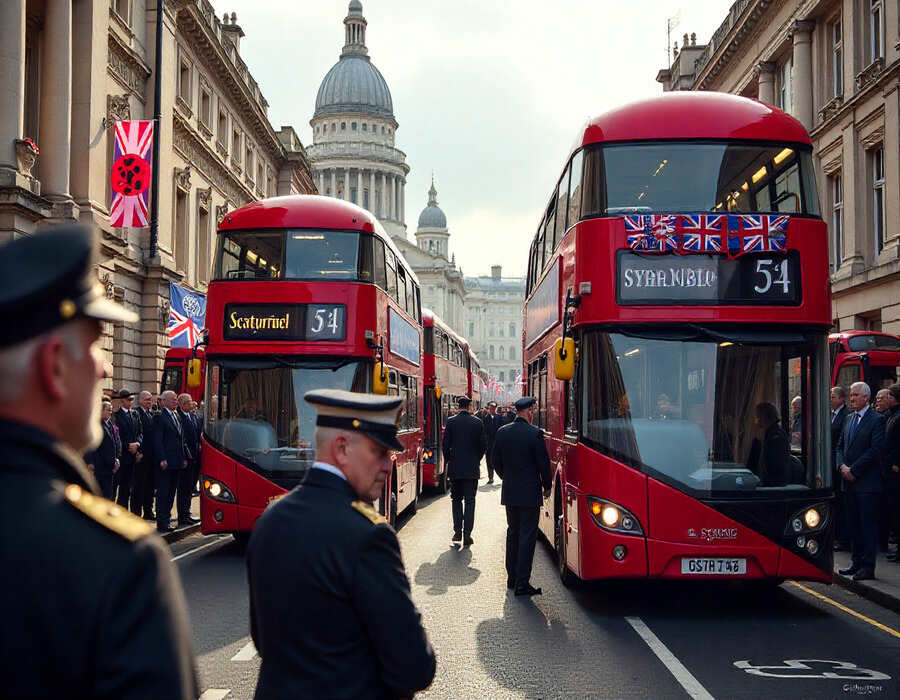Wednesday, March 5, 2025
Music tourism is emerging as a major driver of global travel, with projections indicating that the market will nearly double in value from USD 7.80 billion in 2025 to USD 14.09 billion by 2032. This growth is fueled by the increasing demand for live music experiences, the rise of international festivals, and a shifting preference for travel that combines entertainment and culture. Industry analysts suggest that this surge in music-driven travel will significantly impact airlines, hospitality, and local economies, turning concerts and festivals into major tourism magnets.
A Global Phenomenon: Why Travelers Are Prioritizing Music
Music has always had the power to unite people, and today, it is transforming how and why people travel. As festival tourism gains momentum, travelers are no longer content with static vacations. Instead, they are designing their trips around concerts, exclusive performances, and iconic music destinations.
From Coachella in California to Tomorrowland in Belgium, these festivals draw in millions of attendees, many of whom travel from across the globe. Event organizers are capitalizing on this trend, partnering with airlines and hospitality brands to create bundled experiences that include VIP access, curated city tours, and luxury accommodations.
The Economic Ripple Effect on Destinations
The expansion of music tourism is not only benefiting travelers but also significantly boosting local economies. Cities that host annual music events are witnessing a surge in hotel bookings, restaurant revenue, and transportation demand. Experts predict that destinations that invest in music infrastructure—such as dedicated festival venues and government-backed tourism incentives—will see the highest long-term economic gains.
For instance, destinations such as Austin, Texas, and Berlin, Germany, which have long embraced music as a core tourism offering, continue to thrive. Similarly, emerging markets in Asia and the Middle East are now vying for a share of this lucrative industry, with countries like Saudi Arabia launching large-scale music events to attract global tourists.
Air Travel and Hospitality: Adapting to the Music Tourism Boom
The rise of music tourism is prompting airlines to adjust their strategies, with new flight routes and travel packages tailored specifically for festival-goers. Many airlines are launching limited-time promotions aligned with major music events, ensuring that attendees can travel affordably and conveniently.
Hotels and short-term rental platforms are also adapting. In high-demand festival cities, properties are offering themed accommodations, concierge services for ticket bookings, and event-exclusive deals. Luxury resorts in Ibiza, Las Vegas, and Dubai are creating music-centric experiences, featuring in-house DJs and private concert packages to entice travelers.
Technological Innovations Driving the Market
As music tourism expands, technology is playing a crucial role in enhancing the traveler’s experience. AI-powered travel platforms are now recommending music festivals based on listening preferences, while ticketing apps integrate with airline and hotel booking systems to create seamless itineraries.
Additionally, the rise of virtual reality (VR) and live-streamed concerts is providing remote audiences with immersive previews of music destinations, prompting more spontaneous travel decisions. Experts believe that blockchain-based ticketing systems will also revolutionize the industry by eliminating scalping and ensuring secure access to exclusive events.
Sustainability Concerns: Can the Industry Keep Up?
Despite its economic benefits, music tourism faces challenges, particularly in sustainability. The influx of travelers to major music events can strain local resources, leading to concerns over waste management, carbon emissions, and overtourism.
To counteract these issues, festival organizers and tourism boards are implementing eco-friendly initiatives, such as:
- Carbon offset programs for festival attendees who travel long distances.
- Sustainable accommodations, including glamping sites with renewable energy.
- Reusable ticketing and merchandise programs to reduce event waste.
The Road Ahead: What This Means for Travel Professionals
For travel agencies, airlines, and tour operators, the growing prominence of music tourism presents both opportunities and challenges. Industry leaders are already strategizing how to offer tailored travel packages, exclusive VIP experiences, and destination-based music tourism guides.
With the market expected to surpass USD 14 billion by 2032, businesses that adapt early will gain a competitive advantage. Travel brands that integrate music-driven experiences into their offerings—whether through curated festival tours or exclusive concert vacations—are likely to see significant growth in the years ahead.
A Transformative Era for Global Tourism
Music tourism is no longer just a niche segment—it is shaping the future of global travel. As cities compete for festival-hosting rights, airlines adjust their networks, and hotels reinvent their guest experiences, the travel industry is on the cusp of a major transformation.
For travelers, this means an era where journeys are no longer just about visiting new places, but about experiencing unforgettable moments through music. And for the industry, it signals an unprecedented opportunity to blend entertainment with exploration, creating a new frontier for tourism worldwide.
Tags: Africa tourism, Asia-Pacific tourism, Belgium tourism news, Dubai, Europe Tourism, germany, Germany Tourism News, Global Tourism News, japan, Japan Tourism news, Las Vegas, london, Middle East Tourism, Music and Tourism, music festivals, music tourism, music tourism market, Nevada Tourism News, north america tourism, saudi arabia, Saudi Arabia Tourism News, South America tourism, spain, Spain Tourism News, Tokyo, UAE tourism news, UK Tourism news, United States, US Tourism News



